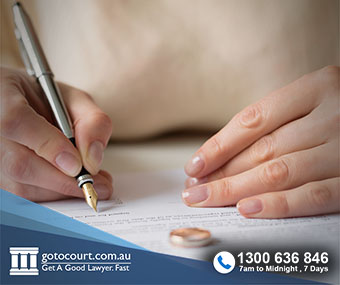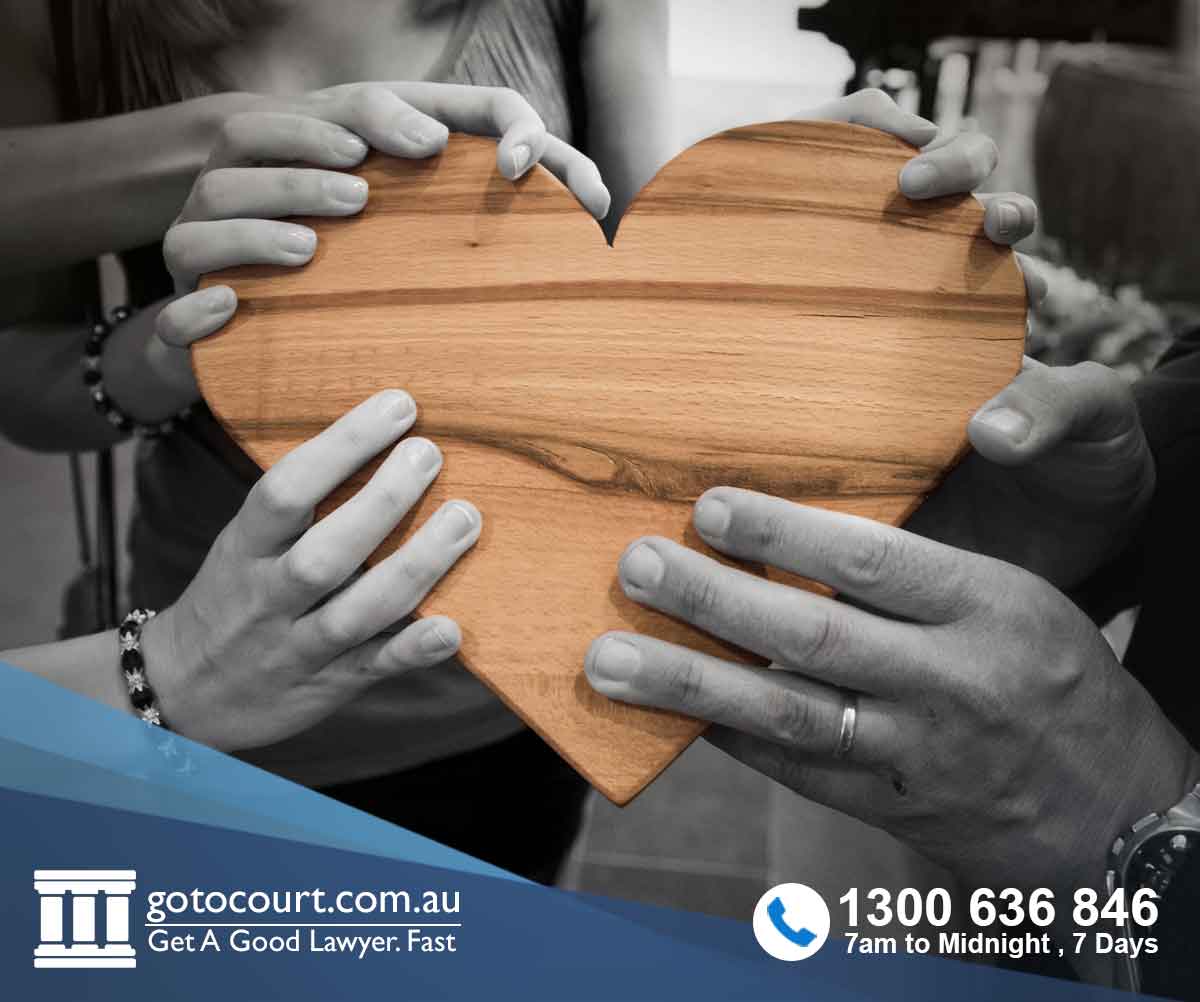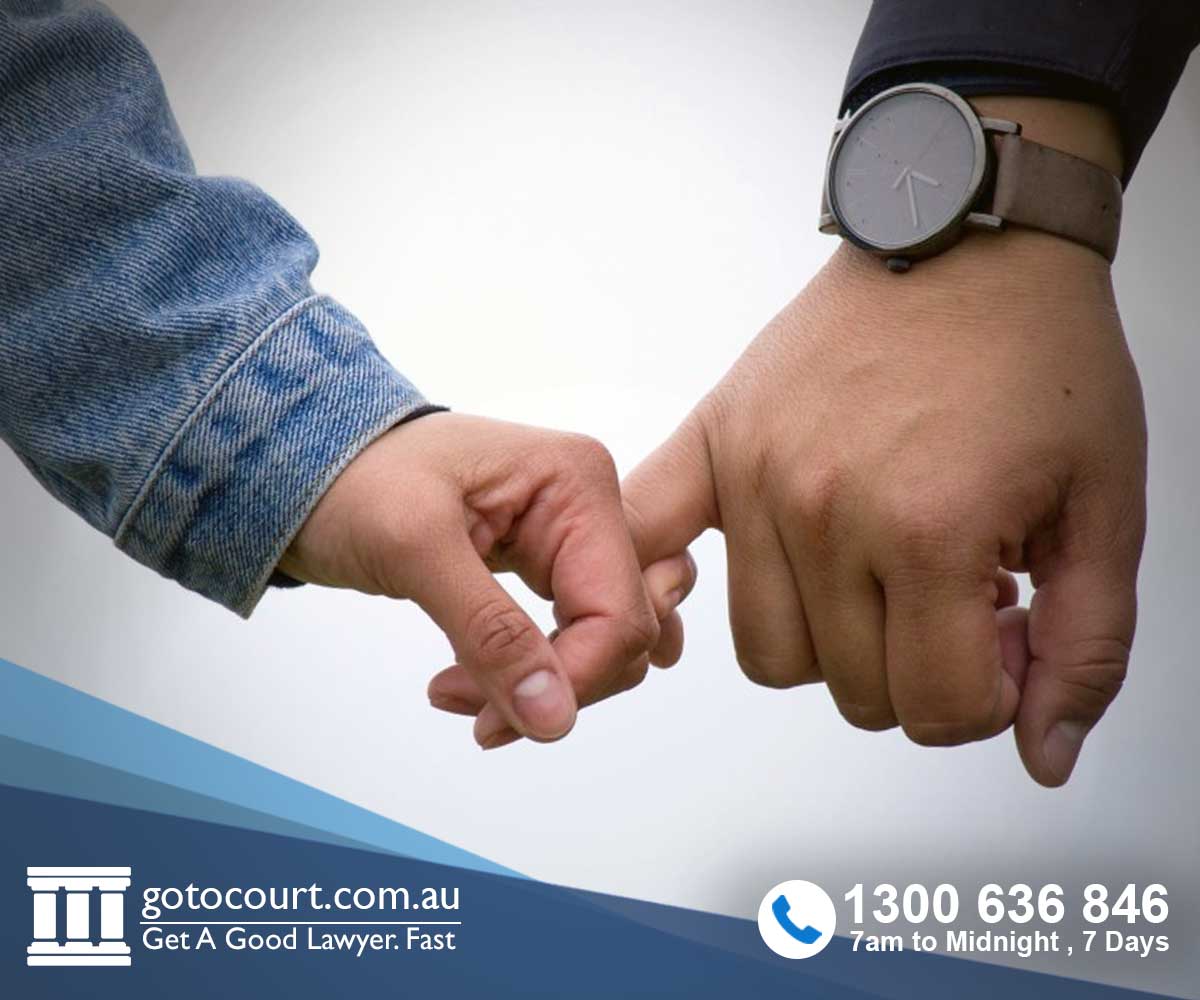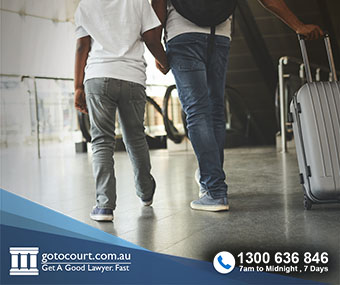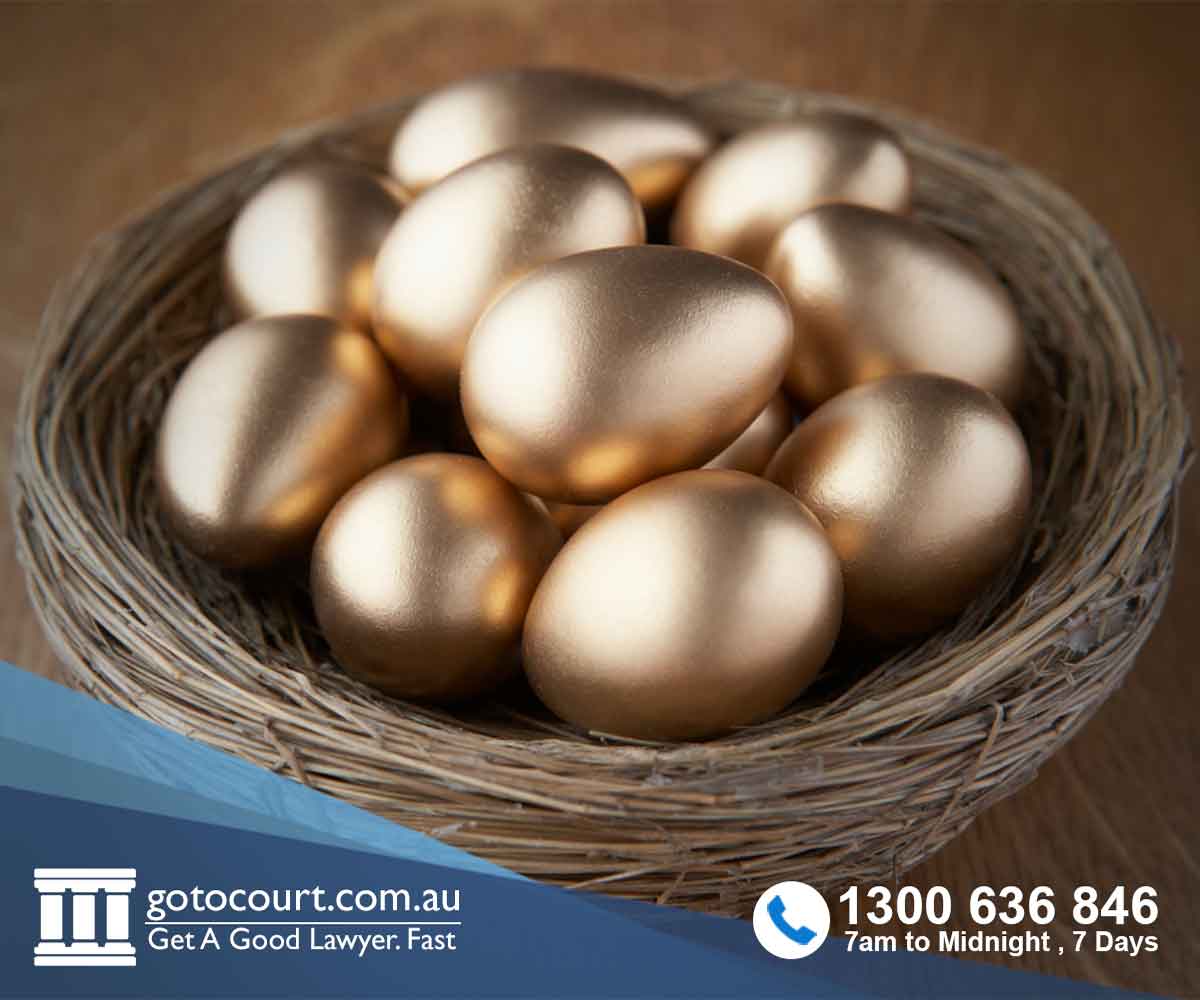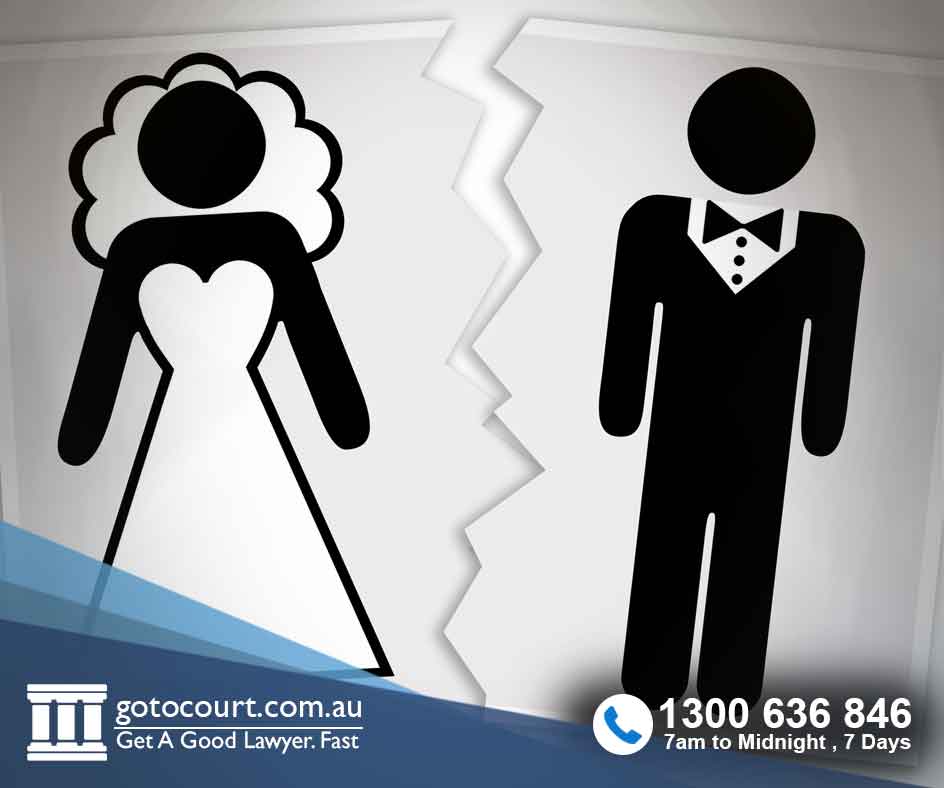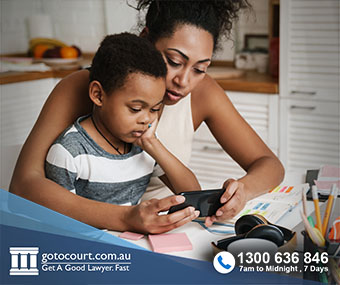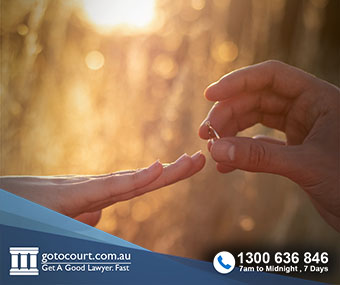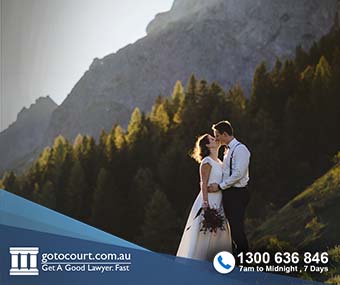Call our lawyers
now
or,
have our lawyers
call you
What Is Marriage In Australia?
Updated on Nov 08, 2022 • 5 min read • 867 views • Copy Link
What Is Marriage In Australia?
Marriage in Australia is governed by the Marriage Act 1961 (Cth). A marriage is defined as the union of two people entered into voluntarily for life to the exclusion of others.
Who can marry in Australia?
Any person over the age of 18 can enter into a marriage as long as the relationship is not between close family members.
It is possible for someone under 18 but over 16 to marry, but they must either have their parent’s consent, or authorisation from the court. If the young person’s parent refuses to consent to the marriage, the person can apply to the court for approval to marry. Once parental consent or the court’s authorisation has been obtained, the marriage must take place within three months.
What is the legal effect of marriage in Australia?
Marriage in Australia has a number of legal consequences for the parties involved.
⇒ It invalidates any previous wills the parties have made unless the will clearly shows that marriage was planned.
⇒ The amount of tax a person pays changes once they are married; you must therefore notify the Taxation Office of your marriage.
⇒ The dollar value of any health or welfare benefit a person receives may change once they are married, so they should notify the Department of Human Services as soon as they can after marrying. It is a criminal offence to mislead or provide false information to the Australian Government about a person’s entitlement to health or welfare payments.
⇒A person who marries can elect to change their name to their spouse’s surname. Where a party chooses to change their name, they should update their details on all forms of identification and notify organisations and government departments of the change.
What are the legal requirements for a marriage in Australia?
For a marriage to be valid in Australia, a number of legal requirements must be met.
- The ceremony must be performed by someone who is authorised to perform it, such as a marriage celebrant or minister of religion.
- The ceremony must be witnessed by at least two other persons over the age of 18. They must watch the couple sign the marriage certificate and must then sign it themselves.
- The parties must complete and submit a Notice of Intended Marriage. This can be done up to 18 months before the marriage, but it must be submitted no later than one month before.
- The parties to the marriage must provide evidence of the place and date of their birth and the end of any previous marriages.
- The parties must sign a ‘Declaration of no legal impediment to marriage’ confirming they are of marriageable age and that there is nothing which would legally prevent their marriage.
- The marriage must be registered with the Registry of Births, Deaths and Marriages.
While persons getting married can make up their own vows, as part of the marriage ceremony, both parties must, at some point in the ceremony, state their intention to be lawfully married to the other person.
A marriage celebrant must also make particular statements in the hearing of the witnesses. They must declare that they are authorised under Australian law to perform marriage ceremonies, and they must state the definition of marriage as set out in the Marriage Act 1961. They must also remind the parties of the solemnity of marriage and that it is a binding relationship.
Marriages performed overseas
A marriage performed overseas will, on most occasions, be considered valid in Australia provided:
- it was recognised as a valid marriage by the law in the place where you were married,
- it would have been a valid marriage if it had been performed in Australia, and
- the marriage has been registered.
Ending a marriage
There are three ways in which a marriage can end. These are;
Divorce
The most common way to end a marriage in Australia is by divorce. This process is governed by the Family Law Act 1975 (Cth). Australia has a no-fault divorce system, meaning that neither party to the marriage will be blamed for the breakdown of the marriage.
Parties must make an application to the Federal Circuit and Family Court of Australia (FCFCA) to obtain a divorce. An application can only be made following a period of separation of at least 12 months. It may be made by either party to the marriage or jointly. If the application is made by a sole applicant, then it must be served on the other spouse.
Whilst there are many DIY divorce kits available, it is recommended that you seek legal assistance when ending a marriage, particularly where children are involved, to ensure you receive everything to which you are entitled and that the children are adequately supported and appropriate parenting arrangements are in place.
Annulment of marriage
The court can annul a marriage that it finds is invalid. At least one of the parties must be an Australian citizen, live in Australia and consider it their home, or have lived in Australia for at least 12 months prior to making an application for annulment in Australia.
The court will annul a marriage by issuing a decree of nullity where:
- the relationship between the parties is illegal or prohibited, as in the case of siblings
- one or both of the parties to the marriage were married to someone else at the time they married
- the marriage did not comply with the law in the place where the parties were married
- one of the parties was not old enough to marry, or, if they were between 16 and 18 and were being forced into the marriage, they were mistaken about what marriage was or who they were actually marrying, or they were not sufficiently capable of understanding what was taking place.
If you require legal advice or representation in any legal matter, please contact Go To Court Lawyers.

Affordable Lawyers
Our Go To Court Lawyers will assist you in all areas of law. We specialise in providing legal advice urgently – at the time when you need it most. If you need a lawyer right now, today, we can help you – no matter where you are in Australia.How It Works







1. You speak directly to a lawyer
When you call the Go To Court Legal Hotline, you will be connected directly to a lawyer, every time.


2. Get your legal situation assessed
We determine the best way forward in your legal matter, free of charge. If you want to go ahead and book a face-to-face appointment, we will connect you with a specialist in your local area.


3. We arrange everything as needed
If you want to go ahead and book a fact-to-face appointment, we will connect you with a specialist in your local area no matter where you are and even at very short notice.





